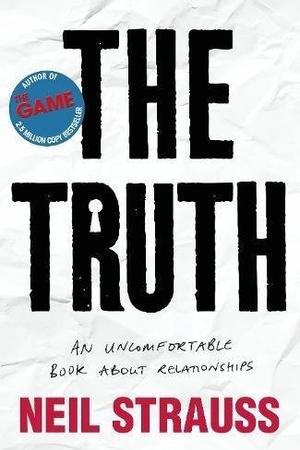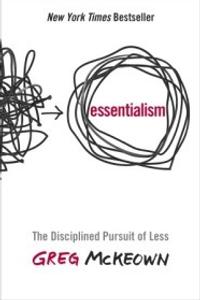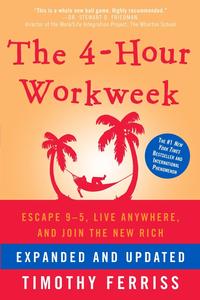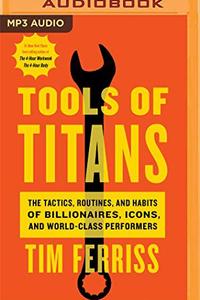
The Truth by Neil Strauss: Summary & Notes
by Neil Strauss
In One Sentence
A journey from sex addiction through therapy to understanding that real intimacy requires facing yourself—not running from commitment into conquest.
Key Takeaways
- Serial seduction often masks deeper wounds and fears
- True intimacy requires vulnerability and commitment
- Childhood attachment patterns shape adult relationships
- Therapy and self-work are essential for real change
- Running from intimacy into novelty never satisfies
- Love requires being fully known and accepted
Summary
You may know Neil Strauss from The Game, a book about his journey into the world of pickup artists. This book is about Neil’s journey away from that world, exploring various alternative relationship options, from polyamory to being treated for sex addiction, ultimately in search of love and the perfect relationship. Neil is a great writer and the book is highly entertaining. Recommend for those both looking for an entertaining read or interested in alternative relationship styles. If you’re interested in books like Mating in Captivity, or Neil’s previous books, you’ll enjoy this one too.
Who Should Read This Book
- Anyone who has struggled with commitment
- Readers curious about what happens after pickup artistry
- People interested in relationship psychology
- Those on a journey of personal growth
FAQ
Is The Truth a sequel to The Game?
Yes—Neil Strauss wrote The Game about becoming a pickup artist. The Truth is his follow-up, exploring why he still felt empty after "winning" the game, his journey through sex addiction therapy, and his path to authentic relationship.
📖 Chapter-by-Chapter Breakdown
Click to expand the full detailed notes for every chapter →
📖 Chapter-by-Chapter Breakdown
Click to expand the full detailed notes for every chapter →
Notes
Stage 1: Wounded Child
- When I’m single, I want to be in a relationship. When I’m in a relationship, I miss being single. And worst of all, when the relationship ends and my captor-lover finally moves on, I regret everything and don’t know what I want anymore.
- In a recent Pew Research survey, four out of ten people believed that marriage was an obsolete institution.
- Several years ago, I wrote a book called The Game which was about my search for the answer to the question: Why don’t women I like ever like me back?
- In the pages that follow, I attempt to solve a much tougher life dilemma: What should I do after she likes me back?
- If you’re interested in getting more out of this odyssey for yourself, notice the words and concepts that most excite or repel you. Each gut reaction tells a story. It is a story about who you are and what you believe. Because, all too often, the things that we’re the most resistant to are precisely what we need. And the things we’re most scared to let go of are exactly the ones we most need to relinquish.
- Perhaps marriage is like buying a house: You plan to spend the rest of your life there, but sometimes you want to move—or at least spend a night in a hotel.
- Since adolescence, we’ve been trained as men—by our friends, by our culture, by our biology—to desire women. It seems unreasonable to expect us to just shut it off forever once we get married. Legs are long, breasts are soft, and forever is a long time.
- On the wall is a large chart titled "The Addiction Cycle," with four terms—preoccupation, ritualization, acting out, and shame & despair—arranged in a circle. Arrows point from one word to the next in an endless loop.
Stage II: Functional Adult
- "If you think of intimacy as into me I see and I share that with you—that’s intimacy," Lorraine begins.
- "Intimacy problems come from a lack of self-love," she continues. "Someone who fears intimacy thinks, unconsciously, If you knew who I actually was, you’d leave me."
- It’s a good question: I’ve always seen myself as more ambivalent in my relationships than avoidant, but perhaps doubt is just a form of avoidance because it prevents me from ever fully committing to anyone.
- "A healthy relationship is when two individuated adults decide to have a relationship and that becomes a third entity. They nurture the relationship and the relationship nurtures them. But they’re not overly dependent or independent: They are interdependent, which means that they take care of the majority of their needs and wants on their own, but when they can’t, they’re not afraid to ask their partner for help."
Exclusivity
Stage I:
- Love Avoidant: enters or returns to relationship out of obligation, connecting behind a wall of seduction.
- Love Addict: enters or returns to relationship to end pain of abandonment, connecting in a fog of fantasy.
Stage II:
- Love Avoidant: feels oppressed by partner’s neediness and moves from wall of seduction to wall of resentment.
- Love Addict: ignores partner’s walls and partner’s need to have a life beyond the relationship.
- Pets are the gateway drug to children. As a general rule, when a woman over twenty-five gets a dog, it means she’s ready to start a family.
Stage III:
- Love Avoidant: further engulfment by partner leads to withdrawal from relationship and intensity seeking.
- Love Addict: experiences an unthinkable incident or awareness that ends the fantasy.
- So I ask Fisher how to best overcome our evolutionary past and have a successful, lasting relationship today. She responds by explaining that we’ve developed three different primary brain systems for mating: one for sex, another for romantic love, and a third for deep attachment. And after the initial intensity of a new relationship, our romance and sex drives often swing toward other people, while our attachment drive remains connected to our primary partner.
- However, before I can draw any conclusions, Fisher says that this natural ebbing of romance and sexuality can be prevented. The solution, she elaborates, is for couples to do novel and exciting things together (to release dopamine and get the romance rush), make love regularly (to release oxytocin and sexually bond), cut themselves off from cheating opportunities, and, in general, make sure their partners are "continually thrilling" enough to keep all three drives humming.
- "If it were all genetic, if humans just by nature mated for life and there were a very tight pair-bond," Professor Peter J. Richerson explains, "then we wouldn’t need all these marriage customs."
- As for marriage itself, historian Stephanie Coontz, the author of Marriage, a History, tells me that the tradition was never even supposed to be about intimacy. For the majority of its history, marriage was an economic and political institution, mostly about merging resources, forming alliances, or creating a bloodline for inheritance, she explains. Not until the late eighteenth century did people marry for love. And it took until the late twentieth century for marriage to start becoming an intimate partnership rather than a patriarchal institution.
Stage IV:
- Love Avoidant: leaves relationship and repeats cycle with new partner.
- Love Addict: returns to fantasy about partner or repeats cycle with new partner.
Alternatives
Stage I: Polyamory
- Men have a conflicted relationship with female sexuality: When a man is single, he wants women to be as easy and undiscerning as porn stars. But at the same time he’s terrified by this behavior, because he thinks if a woman sleeps with him so easily, then clearly she’ll sleep with anybody and thus won’t be faithful in a relationship. We have so many contradictory, repressive, self-limiting beliefs about sexuality—and almost every one of them stems from a pathological need to dictate to someone else what they are and aren’t allowed to do with their body and heart.
- Loneliness is holding in a joke because you have no one to share it with.
- For most men, what’s tougher than breaking up is the moment when their ex finally falls out of love with them and lets go, perhaps because it triggers a childhood fear—a psychological terror—of losing the first woman whose love they needed: their mother. And so, as Sheila would recommend, I let myself feel the pain, the loneliness, and the fear, using all my strength as the days pass to keep from giving in and reaching out to Ingrid.
Stage II: Swapping
- Many women think that if they put out too quickly, their partner won’t respect them. This is not the case. It’s not about waiting for a certain quantity of time before having sex, it’s about waiting for a certain quality of connection.
- I watch her work, but I’m so confused and let down that it’s hard to stay in the moment. I remember watching the documentary Anatomy of Sex. It explains that when the penis is limp, that’s when it’s actually tense. The muscles are constricted. When it gets aroused, the penis relaxes. And this allows blood to enter, which expands the spongy tissue and creates the erection. So you need to be relaxed to get hard. You can’t get hard when you’re tense. And I’m tense, because I finally found someone open-minded who I can see myself dating—and she’s taken.
- Ultimately men are more attracted to sexual availability than they are to beauty.
Stage III: Harem Life
- I used to think that a good relationship meant always getting along. But the secret, I realize, is that when one person shuts down or throws a fit, the other needs to stay in the adult ego state. If both people descend to the wounded child or adapted adolescent, that’s when all the forces of relationship drama and destruction are unleashed.
- A piece of relationship advice Lorraine taught in rehab rings ominously in my head: "Unspoken expectations are premeditated resentments."
- Life is a learned skill, but instead of teaching it, our culture force-fills developing minds with long division and capital cities—until, at the end of the mandatory period of bondage that’s hyperbolically called school, we’re sent into the world knowing little about it.
- Fear of loss: It has motivated many weak people to make commitments they shouldn’t have.
Stage IV: What is My Species?
Stage V: Adventure
Stage VI: Open
- They say that absence makes the heart grow fonder, but according to science, even more powerful than the large space between you and the one you love is the small space between that person and someone else. In studies on sperm competition, males ejaculated more and harder after their partner had been with a rival. In her book Mating in Captivity, psychologist Esther Perel advises that the way to keep romance and sex hot in a relationship is through separation, unpredictability, and fear of loss.
- Relationships are like divining rods for locating one’s faults and weaknesses.
- Try is the critical word here, because managing feelings is like taming lions. No matter how successful you think you are, they’re still ultimately in control.
- Researchers at Princeton University did a study on the correlation between money and happiness. As people’s incomes rose up to $75,000 annually, their happiness increased. But at incomes beyond that, people on average did not become happier.
- Perhaps the same is true of sexual partners.
- "There is nothing frenzied about debauchery, contrary to what is thought," Albert Camus once wrote. "It is but a long sleep."
- "The obvious clinical facts demonstrate that men—and women—who devote their lives to unrestricted sexual satisfaction do not attain happiness, and very often suffer from severe neurotic conflicts or symptoms. The complete satisfaction of all instinctual needs is not only not a basis for happiness, it does not even guarantee sanity." —Erich Fromm, The Art of Loving
- It may not be a fairy-tale happy ending, but it’s a real-life happy ending. Life is a test and you pass if you can be true to yourself. To get the first question correct, all you have to know is who you are. A life is just one letter away from a lie.
- Sex is easy to find—whether through game, money, chance, social proof, or charm. So are affairs, orgies, adventures, and three-month relationships—if you know where to look and are willing to go there. But love is rare.
- I was so blind. I really thought that when I broke up with Ingrid, it was about wanting freedom. I didn’t see at all, despite everything I’d learned, that it was about not wanting to be loved so much. I did exactly what Lorraine warned me not to: I let the grounded adolescent run my life.
- Except if married men have mid-life crises, men who haven’t ever truly been able to commit have no-life crises. And if they’re able to see clearly for even just a moment, they start to realize that they’re losing more than they’re gaining each day they remain stalled on the scenic road of growing up.
Anhedonia
Stage I: Emptying Out
- “Anhedonia."
- I repeat the word clumsily. I’ve read many big books with big words, but I’ve never come across anhedonia before. Whatever it is, I don’t like the sound of it.
- "It’s the dark place of not feeling," she elaborates. "People feel dead in the place of anhedonia. They can’t experience joy."
- I think back to Henry’s ninth emotion. That’s what it’s called—not the death emotion, but anhedonia. "Why would I want to experience that?"
- "Because in order to return to homeostasis and have any clarity on who you are and what you need, you have to detox from the intensity of these one-up, one-down relationships. You’ve been through a constant cycle of intensity, from your relationship with your mother all the way up to your relationship with Sage." She pauses to order a glass of wine, and for some reason I’m surprised, as if drinking is taboo for addiction therapists. "You’ll find that being committed to your authentic life supersedes the intensity."
- In the weeks that follow, as I wind down my life and wait to get help from Lorraine, masturbation saves me.
- You want to ask out someone you recently met? Masturbate first, then see if you still want to spend six hours wining, dining, and entertaining her, desperate for an outcome that’s not only going to disappoint you if it doesn’t occur, but may even disappoint you if it does.
- You want to call an escort? Masturbate first, then see if you really want some junkie who looks nothing like her decade-old Photoshopped images to give you a lazy hand job.
- You want to call a former fuck buddy? Masturbate first, then see if you still want to invite her over, have sex that isn’t as good as you remembered, then spend the rest of the night figuring out how to politely get rid of her without hurting her feelings.
- Masturbate when you want to break the rules of your relationship or your celibacy agreement—and you’ll soon discover that once your desires are fulfilled in your imagination, the need to live them out in real life suddenly doesn’t seem so urgent. Once the brain’s reward center has gotten its hit of dopamine, it doesn’t need another one - at least not for a little while.
- The answer: I was never actually pursuing sexual freedom. I was pursuing control, power, and self-worth. I was either acting like my mom or making someone into my mom. But rarely was I actually myself. Because, as I witnessed on ecstasy, the feeling that I’m not acceptable as I am is so fucking overwhelming that I’m terrified to let go and just be myself with anyone.
Stage II: Filling Up
- Each day, I try to take care of the six core needs Lorraine told me about: physical, by surfing and eating healthily; emotional, by allowing myself to experience and express feelings without being either hypercontrolling or out of control with them; social, by spending time with Adam, Calvin, Rick, and other growth-minded friends; intellectual, by reading literature, listening to lectures, starting a film discussion group, and, most importantly, simply listening more; and, most alien of all for me, spiritual, through transcendental meditation, which a friend of Rick’s teaches me.
- But the biggest challenge is the sixth core need: sexual, especially since I’m chaste and porn-free right now. So while continuing with the rest of my self-care regimen, I decide to skip this one.
- Suddenly I realize that the dichotomy between the false self and the authentic self that all these recovery people talk about is meaningless. It’s a value judgment that’s impossible to determine. A better way to think about it is the destructive self and the creative self: the you that damages your life and the lives of others, and the you that brings forth the best in yourself, is connected to others, and is in harmony with the world around you.
- "How you do anything is how you do everything," Rick responds, with a calmness that for once I mirror. "Do you see now that the way you choose to live your life affects everything about it? A cheat here and there is not just a cheat here and there. It’s a break in the continuum of who you are and the person you are in the world."
- I pull out my phone and show him a memo I wrote one night in bed during anhedonia:
- Why I Cheated:
- I didn’t communicate or keep boundaries with Ingrid, so I acted out due to fear of engulfment.
- I didn’t share my sexual preferences with Ingrid or give her space to share hers, so I acted out due to unfulfilled sexual desires.
- I blamed her for “not allowing me” to fuck other people, so I acted out due to a denial of personal responsibility for my behavior.
- I had feelings of worthlessness and low self-esteem deep down, so I acted out for acceptance and validation.
- I had no spirituality and a faulty intellectual paradigm, so I acted out because I believed we’re no different from any other animal and that’s what animals do, and the consequences don’t really matter to the universe.
- For once, Rick is speechless. A smile slowly spreads across his face. And after what feels like eternity, he tells me, "I think you’re going to understand what I mean now when I tell you the secret to being faithful."
- "What’s that?"
- "Don’t trade long-term happiness for short-term pleasure."
- I add that phrase to my notes. It’s a good mantra to remember.
- "Think of intimacy as a fire," he continues. "The more logs you add to it, the bigger it gets. And the bigger it gets, the less you want to throw water on it."
- Rick studies my face. Words are easy to say, but am I capable yet of living by them? Another test percolates in his mind. He is a producer not just of music, but of lives. "If things don’t work out with Ingrid, in order to give your next relationship a chance, I would recommend building intimacy and making a deep emotional commitment before beginning a sexual relationship. I think that should be your new challenge: to wait three months before having sex with your next girlfriend."
- Some schools of attachment theory assess the way people behave in relationships on a continuum, rather than by clear-cut categories like in rehab. They place people on a graph divided into four quadrants, running from low anxiety to high anxiety on the x-axis and high avoidance to low avoidance on the y-axis. Each quadrant determines a different attachment style: High avoidance and high anxiety would be fearful-avoidant attachment, similar to love avoidance; high anxiety and low avoidance would be preoccupied attachment, similar to love addiction; high avoidance and low anxiety would be dismissing attachment, a more extreme form of love avoidance in which relationships are rejected almost altogether because no partner is perceived as worthy. So for fun, I take a test to determine which style I have, answering each question as honestly as I can. And I’m relieved when I fall into the fourth category: low avoidance and low anxiety.
Excerpts from An Incomplete Guide to Love for the Incomplete Man
- No matter what the situation may be, the right course of action is always compassion and love.
- As long as at least one partner is in the adult functional at any given time, most—if not all—arguments can be avoided.
- Recognize when you are backsliding into a childish or adolescent behavior. Then pinpoint what old story is being triggered and tell yourself the truth of the situation. Let go of the lie.
- Accept what is.
- What if . . . Today I will expunge those two words from my vocabulary and replace them with I will accept it if.
- Instead of saying "I’m never going to cheat again," say, "Today, I’m not going to do that thing that makes me feel weak and shameful about myself again."
- Perhaps the corollary to Rick’s secret is that the fantasy of other people is almost always better than the reality.
- You can’t have a relationship with someone hoping they’ll change. You have to be willing to commit to them as they are, with no expectations. And if they happen to choose to change at some point along the way, then that’s just a bonus.
- Communicate and maintain healthy boundaries. This means finding the proper balance of filtering and protecting your self, thoughts, feelings, time, and behaviors without either closing off behind walls, or becoming overwhelmed or overwhelming.
- Ask yourself throughout the day, "What do I need to do in this moment to take care of myself?" If you can be aware of what legitimate needs and wants you’re not attending to, and then take actions to meet them on your own—or ask your partner for help if you can’t—that is the road to happiness.
- No one can make you feel anything and you don’t make anyone feel a certain way. So don’t take on responsibility for your partner’s feelings and don’t blame your partner for yours. The most caring thing to do when they’re upset is simply to ask if they want you to listen, to give advice, to give them space, or to give them loving touch.
- Love, honor, and affirm yourself. Whatever your decisions, actions, feelings, and thoughts throughout the day may be and whatever outcome they may lead to, if you are healthy, then they are ultimately healthy.
- And, above all, always remember to breathe and be in the moment.
- I think about how I snuck out on Ingrid so long ago, telling her I was going to Marilyn Manson’s house the night before our trip to Chicago, the night before her birthday. And I feel disgust with myself for ever having done that. I used to think I was a good person, but how could a good person do something so reprehensible?
- The answer: compartmentalization. The act of putting shameful activities in a small sealed box in our brain, where they remain safely hidden, even from our own intelligence and conscience.
Freedom
- Shame is about being bad for someone; reassurance is about being good to yourself.
- I tell her about the harem house, and learning that love is not a terrifying monster making unreasonable demands on my life, but a beautiful friend making occasional requests that I have the option to accept or deny. And I tell her about the open relationship, and learning not just to let go of jealousy and control, but to explore my painful emotions rather than avoiding them like an addict.
- It turns out that relationships don’t require sacrifices. They just require growing up—and the ability to stop clinging to immature needs that are so tenacious, they keep the mature needs from getting met.
- I’ve come to realize that there’s no so-called natural way to be in a relationship. The whole idea that we can study the past or other cultures to determine what’s right for us today is ridiculous. Because nearly every society of simians tells a different story of mating and sexuality—and every point of view can be supported with evidence from some other tribe or species. There isn’t just one true and proper way to love, to relate, to bond, to touch. Any style of relationship is the right one, as long as it’s a decision made by the whole person and not the hole in the person.
- The path of ambivalence leads nowhere.
Gratitude
- And for those who want to use this experience as a starting point for your own explorations, here are a few first steps you can take as you find your unique path
- I also recommend taking Patrick Carnes’s Post-Traumatic Stress Index test online to understand the ways your past haunts your behavior today. (Use the original PTSI test, not the revised PTSI-R.)
- I’m currently keeping an open and expanding list of recommended websites, workshops, and practitioners at www.neilstrauss.com/thetruth
- I put together an appendix of all the different relationship styles I could find, and you can grab that at www.neilstrauss.com/goodtimes



